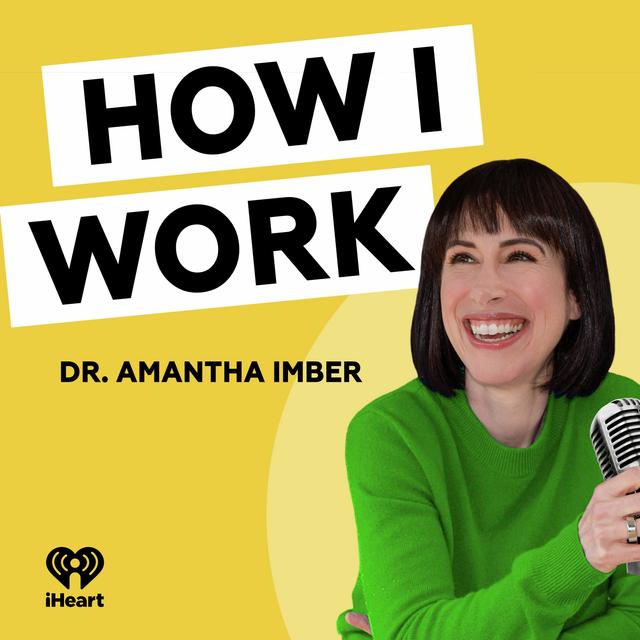Today's episode is another my favorite Tip episode where I go back to interviews from the past and I dig out the thing that was my favorite tip, like the thing that I got out of the interview that really impacted or resonated with me. So today's extract is from my chat with Mia Freedman, and this was actually the second time I've had her on how I work because I loved her so much the first time that I was really keen to check in with her during COVID to see how she was going and how her working
life had changed. So if you're not familiar with Miya, Miya is the co founder and chief creative officer of the Mamma Mia women's media company in Australia. Mama Mia has an audience of more than five million women each month and includes the largest women's podcast network on the planet with over sixty seven million listens and twenty eight
different shows. So the extrac that I've pulled out of my full chat with Meat was a strategy that she was using to get a quick read on how her staff were going and their mental well being, particularly during COVID. I'm not sure if she's continued this, but the strategy really resonated with me, and it was something that we tried out at Inventing for a while as well, and I personally found it really helpful. So on that note,
let's head to me up. The other thing that you've said that kind of found quite interesting is when you were saying how when you started your meeting towards the beginning of lockdown, you'd start them with everyone giving a rating out of ten as to how they're going. And I don't think I've heard anyone else say that, so
I wanted to dig into that. I think that the closest thing I can think about that I've heard was I think I've read an article about how Brene Brown was kicking off all her meetings with everyone doing just a two word check in, and particularly for big meetings, you know, just doing that on Zoom, which I have adopted. It I find really useful. But tell me more about this rating out of ten check in.
So we did that as a just we did that first in the Senior Leadership team, just as a way to cut to the chase, because you know, as Brene Brown quite rightly pointed out, or Esther Perel said this, if you ask someone how they are, or if you ask someone how they were during those first few weeks, they'd usually say, oh, you know, can't complain. We're all safe. You know, I've still got my job, and that often
disguises what's going on. And so we did this at first, and it doesn't work in big groups because people can be feel a bit put on the spot. But because everyone was dealing with so many different things, the out of ten personal and the out of ten work just gave us away and we wouldn't make anyone really elaborate, but it just gave us a way to say, Okay, this person needs some more attention and this person needs
some more support. So, for example, there were a lot of things that we didn't all know about our colleagues until this happened, and suddenly we were literally looking into people in their homes and oh, so you know, the first thing that people were asking in those first weeks on Zoom were like, so, who were you locking down with?
And that's how you found Some people were married, some people were in same sex relationships, some people were living with their in laws, some people were separated from their partners, some people had gone home to live with their families. You know, where they hadn't lived at home for a decade, and they were all very unique.
You know.
Some people had kids with additional needs that they had to look after, and that just gave us a sense as managers, Okay, who do we have to be on the lookout for, because we don't want anyone you know, we have a strong duty of care and we don't want anyone to slip through the cracks. We want to
make sure that no one just goes. The other thing is that sometimes people would just go very quiet, and that's when someone usually in the team would go need to check on so and so they've just gone pretty quiet the last few days, you know, because we've got ninety five percent of our team of female. So there's a lot of good communication that goes on. A lot of talking at the best of times, but this even ratcheted up for us a notch to that extra level.
That is it for today's show. If you want to listen to the full episode, I linked to that in the show notes, so you might want to check that out.
And if you.
Are enjoying how I work, I would be so deeply grateful if you just take five seconds out of your day to leave a review in Apple Podcasts. It might be a star rating or a few words, and by doing so it helps other people find the show and it also brings a huge smile to my face. So thank you to the hundreds of people that have left reviews. It is so deeply appreciated. So that is it for today's show and I will see you next time.
